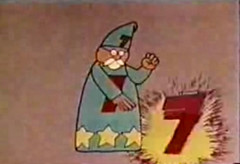Only connect
It is always a defeat to give someone exactly the sort of negative attention they are patently asking for, and I hadn’t wanted to write anything about Ben Marcus’s anti-Jonathan Franzen essay in the current Harper’s, even though I strongly disliked it. I read the first couple pages and skimmed the rest (eagerly searching for any reference to David Foster Wallace, whose writing defies easy classification in Franzen’s Contract v. Status scheme, which scheme, I might point out, serves a particular purpose in a single, semi-autobiographical book review, and wasn’t intended as the cornerstone of a big-time theory of the novel), and I was prepared to dismiss Marcus with an assessment like Jonathan Franzen can write sentences, but Hilary read the whole thing, and I ended up thinking about it more than I had intended. I reread the Franzen essays at issue and announced to Hilary that I had figured out what makes Franzen different and better. “He’s fun to read and makes sense?” Hilary guessed. Yes, I said, and for a quite particular reason: Franzen is a lateral thinker, while Marcus is a linear thinker. You don’t have to know or care about the predicament of the contemporary novelist to enjoy Franzen’s “Why Bother?” (the version of his so-called “Harper’s essay” published in How to Be Alone), since it makes connections to all kinds of things you might find interesting: depression, branding, cities and suburbia, empirical research into people’s reading habits, the first Gulf War, and, of course, Franzen’s life. On the other hand, good luck getting through Marcus’s essay if you aren’t already enthusiastic about the sort of debates that animate students in MFA writing programs, for Marcus endeavors to show you nothing else of the world. Worst of all, you will come away knowing nothing about what Marcus calls “experimental fiction,” the defense of which is the whole purpose of the essay, though you will have irradiated your eyes with long lists of authors Marcus likes. Bizarrely, Franzen’s essay on William Gaddis, “Mr. Difficult,” which expresses serious doubts about books that seem weird on purpose and hard on purpose, is a much better advertisement for experimental fiction. Franzen shows both what’s narratively summarizable about Gaddis and what defies normal sense-making, and the story of his own reading of The Recognitions shows how reading something difficult and long can fit meaningfully into a life. If you aren’t moved by Marcus’s insistence that some people derive a special pleasure from reading sentences that parse badly and defy narrative logic—and this insistence, in bold defiance of the show-don’t-tell rule, is pretty much the core of his argument—a description like this one out of Franzen’s essay might convince you to give Gaddis a try:
There’s something medieval Christian about “The Recognitions.” The novel is a like a huge landscape painting of New York, peopled with hundreds of doomed but energetic little figures, executed on wood panels by Brueghel or Bosch, and looking incongruously ancient beneath layers of yellowed lacquer. Even the blue skies in the book (the phrase “Another blue day” recurs as a despair-inducing leitmotiv) glow like oil-paint skies in an art museum behind whose walls, forgotten, is the age of H-bombs and Army-McCarthy hearings in which the novel was written.


0 Comments:
Post a Comment
<< Home